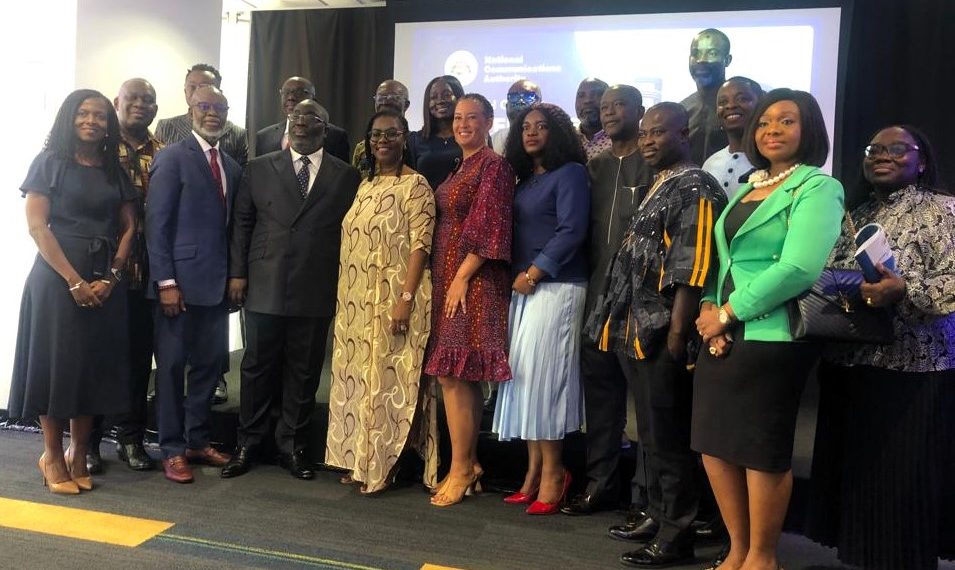The National Communication Authority (NCA) of Ghana is the regulatory body that oversees the communications sector in the country. The NCA is responsible for ensuring fair competition, quality service, consumer protection, and national security in the industry. The NCA also promotes the development of ICT infrastructure and services to support the digital transformation of Ghana.
In January 2024, the NCA launched its new five-year strategic plan for 2024-2028, codenamed “Moving from Good to Great”. The plan aims to position the NCA as a world-class regulator that stimulates growth, innovation, and inclusion in the communications sector. The plan is aligned with the Coordinated Programme of Economic and Social Development Policies (CPESDP) of the government, as well as the Sustainable Development Goals (SDGs) of the United Nations.

The plan outlines six strategic objectives for the NCA, which are:
- To ensure efficient management and utilization of spectrum resources
- To foster a competitive and innovative communications market
- To enhance consumer protection and empowerment
- To strengthen cyber security and resilience
- To build a robust regulatory framework and governance system
- To enhance organizational performance and stakeholder engagement
NCA’s five-year strategic plan is a welcome step towards enhancing its role and relevance in the communications sector in Ghana. However, it also requires further clarification and elaboration on how it will address some of the key questions and challenges that may arise during its implementation.
The plan also identifies key performance indicators (KPIs), targets, and initiatives for each objective, as well as the risks and challenges that may affect their implementation. Some of the notable initiatives include:
- Developing a national spectrum roadmap and implementing automated spectrum management systems
- Conducting market reviews and implementing significant market power (SMP) regulations
- Establishing a consumer complaints resolution mechanism and a do not text or call register
- Developing a national cyber security strategy and establishing a cyber security authority
- Reviewing and updating existing laws and regulations to reflect emerging technologies and trends
- Implementing a digital transformation programme and enhancing staff capacity and welfare
The NCA’s five-year strategic plan is expected to have positive impacts on the communications sector and the economy as a whole. It will enable the efficient allocation and utilization of spectrum resources, which are essential for the deployment of advanced technologies such as 5G and 6G. It will also foster a competitive and innovative communications market that offers diverse and affordable services to consumers and businesses.
Challenges and Criticism
However, it is not clear how the NCA will resolve potential conflicts of interest or trade-offs between these roles, especially in cases where regulation may hinder innovation or vice versa. For example, how will the NCA ensure that its spectrum management policies are fair and efficient, while also encouraging the deployment of new technologies and services that may require more spectrum resources? How will the NCA protect consumers from unfair or harmful practices by operators or service providers, while also respecting their autonomy and choice in the digital market? How will the NCA balance its own mandate and vision with the interests and expectations of other stakeholders, such as the Ministry of Communications and Digitalisation, the National Information Technology Agency, the Data Protection Commission, and others?
How will the NCA update its regulatory framework and tools to keep pace with emerging technologies and services, such as 5G, artificial intelligence, blockchain and internet of things? How will the NCA anticipate and mitigate potential risks and threats to the security, resilience and integrity of the communications infrastructure and services?
Another challenge is how the NCA will measure and monitor its progress and performance in achieving its strategic objectives. The plan provides a list of key performance indicators (KPIs) for each strategic pillar, but it does not specify how these indicators will be defined, collected, analyzed and reported.
For example, how will the NCA measure its regulatory excellence in terms of quality, timeliness, transparency, and accountability? How will the NCA assess its consumer protection efforts in terms of awareness, satisfaction, complaints resolution, and redress? How will the NCA evaluate its digital inclusion initiatives in terms of access, affordability, usage, and skills? How will the NCA quantify its innovation outcomes in terms of new products, services, processes, and business models? Moreover, how will the NCA ensure that its KPIs are aligned with the national development agenda and the Sustainable Development Goals?

A third challenge is how the NCA will adapt to the changing and uncertain environment of the communications sector. The plan acknowledges that the sector is dynamic and evolving rapidly, driven by technological advancements, market trends, consumer preferences, and social needs. The plan also recognizes that the sector faces various risks and threats, such as cyberattacks, natural disasters, pandemics, and political instability.
However, it is not clear how the NCA will anticipate and respond to these changes and challenges in a proactive and flexible manner. For example, how will the NCA update its regulatory framework and tools to keep pace with emerging technologies and services, such as 5G, artificial intelligence, blockchain, and internet of things? How will the NCA anticipate and mitigate potential risks and threats to the security, resilience, and integrity of the communications infrastructure and services? How will the NCA cope with unexpected events or crises that may disrupt or affect its operations or functions?
In conclusion, the NCA’s five-year strategic plan is a welcome step towards enhancing its role and relevance in the communications sector in Ghana. However, it also requires further clarification and elaboration on how it will address some of the key questions and challenges that may arise during its implementation. The NCA should engage in a continuous dialogue and consultation with its stakeholders to refine its plan and ensure its alignment with their needs and expectations. The NCA should also establish a robust monitoring and evaluation system to track its progress and performance against its KPIs and adjust its plan accordingly.
Finally, the NCA should adopt a learning-oriented approach to cope with the changing and uncertain environment of the communications sector.
Catch up on news and other tidbits on our WhatsApp Community Page, Twitter/X, and subscribe to our weekly newsletter to ensure you don’t miss out on any news.










